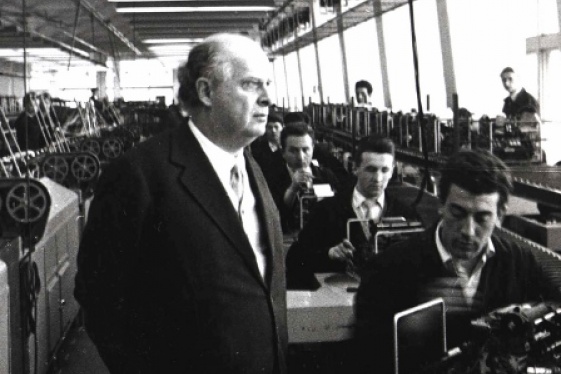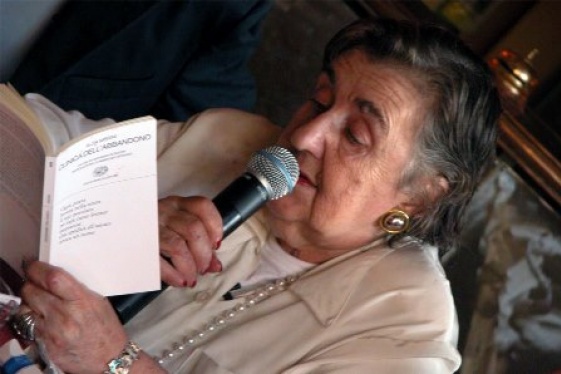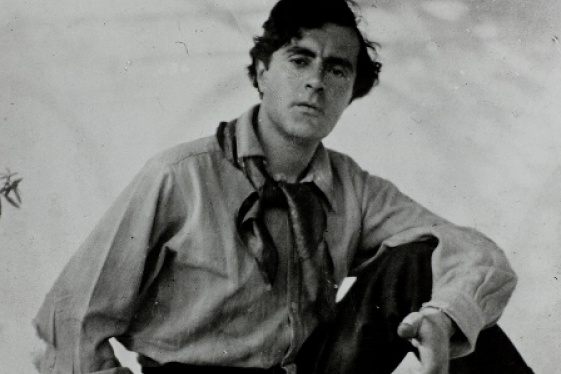

WTI Magazine #56 2015 March, 20
Author : Giovanni Verde Translation by: John Cabot University
The poetical verses composed by Giacomo Leopardi are one of the most appreciated Italian poetry at the level of international sphere. Giacomo Leopardi, man of incredible philosophical level, represents one of the main figures of the worldwide literature. His lyrical poetry goes beyond Italian boundaries, and attracts millions of people around the world from different generations.
Leopardi's famous pessimistic view of Nature, his immortal verses, his utopist and ideal conception of the world, have made of him an unique intellectual developer of modern thought as a symbol of an uncomfortable and hopeful situation.
The Count Giacomo Leopardi was born in Recanati on June, 29th 1798. His father, Monaldo Leopardi, was a conservative and reactionary man; his mother was Adelaide Antici. Since his childhood, Giacomo developed a passion for Latin and Greek texts. For this reason, from 1809 to 1816 he spent seven years of "crazy and most desperate study", as he said. During these seven years, Giacomo learned Latin, Greek, Hebrew, French, Sanskrit, English, Spanish, German and Yiddish. He also composed a few speeches on Greek and Latin classics, translating verses and tragedies of Classical Literature. This entire period of study had caused him physical disease, which along years worsened with the rise of serious illness.
Between 1815 and 1816 Giacomo suffered a deep existential crisis provoked by the intellectual backwardness of his native region and the absolute rigidity of his familiar environment, which was the condition that had mostly influenced his view of the external world.
The great intellectual started thinking to leave his linguistic studies in order to dedicate his attention to poetry and to the constant research of a refuge for his mind. He read Foscolo, Parini Goethe, Byron, Chateaubriand and Madame de Staël.
Several academics have been tried to understand the origin of Leopardi's physical disease. Researchers have supposed that Leopardi was affected by Pott disease, a pathology that causes the deformity of the vertebral column, serious vision and limb problems. Other researchers think to a bipolar disease that justifies the constant mood swings along his life.
The first stage of Leopardian thought had been developed from 1819, year of his disastrous try to leave Recanati. Giacomo suffered for his father's rejection to his willing to leave Recanati, leading him into a strong depression. From that moment on, Giacomo started to define his philosophical though, strictly linked to the futility of hopes, inevitability of pain and uselessness of things. Poems such as L'Infinito, La sera del dì di festa and Alla Luna are composed in these years.
In Fall 1822, Giacomo went to Rome. He was disappointed by the appearance of the capital that he idealized through the studies of the Roman Empire and the Classical languages. He lived in loneliness, hanging out with few foreign intellectuals. After he came back to Recanati for a brief period, he started travelling around Italy from Milan, then Bologna, Florence and Pisa.
His health improved in Pisa in 1827, and he reverted to poetry that he shelved in 1823. During this period he composed new poems known as Grandi idilli (Great Idylls) or Canti pisano-recanatesi as the famous poem A Silvia, inspired to Teresa Fattorini, the coachman's daughter at Leopardi's family house.
After Pisa, Giacomo was forced to return to Recanati, where he stayed until 1830 because of the worsening of his health conditions. In Recanati, Giacomo worked on some of his famous poems such as Le ricordanze, La quiete dopo la tempesta, Il sabato del villaggio, and Il passero solitario. During this period, Giacomo increased his hatred for his native region.
In 1830, he moved to Florence where he stayed until 1837. In Florence, he fell in love with the noble woman Fanny Targioni Tozzetti. The experience of love disappointment inspired the poet to write a collection of poems called Ciclo d'Aspasia, in which the disillusion of love, l'inganno estremo (the extreme deceit) is the fundamental theme.
In 1833, Leopardi went to Naples as guest of a young exiled Antonio Ranieri, who he met in Florence. In Naples, Leopardi continued to write his verses on his notebook called Zibaldone. In the same period he composed La ginestra o il fiore del deserto. This poem symbolizes the last enthusiasm to a fraternal solidarity against the oppression of nature and the extreme illusion of hope that poetry represents.
Giacomo Leopardi died in Naples on June 14, 1837 at the age of 39. His intellectual heritage is still immense and fundamental subject of interest and study, for his sublime lyrical production that makes him the immortal figure of a poet in the worldwide poetical scenario.
You may be interested
-
Great Italians of the Past: A Christmas Eve...
Did you know that Christmas isn’t just a day but it’s a frame of mind?! And it’s to celebr...
-
Great Italians of the Past: Adriano Olivetti
WTI Magazine #79 2016 May 13Author : Giovanni Verde Translation by: An extr...
-
Great Italians of the Past: Alda Merini
WTI Magazine #61 2015 May, 29Author : Giovanni Verde Translation by: A torment...
-
Great Italians of the Past: Alessandro Volta
WTI Magazine #85 2016 November 21Author : Giovanni Verde Translation by: Th...
-
Great Italians of the Past: Altiero Spinelli
WTI Magazine #74 2015 December 11Author : Giovanni Verde Translation by: Th...
-
Great Italians of the Past: Amedeo Modigliani
WTI Magazine #67 2015 September, 4Author : Giovanni Verde Translation by: S...
-
Great Italians of the past: Amerigo Vespucci
Despite being less "famous" than Christopher Columbus, Amerigo Vespucci is the Italian who...
-
Great Italians of the past: Anna Magnani
Anna Magnani was the anti-diva par excellence, the female icon of the neorealism. Among th...










